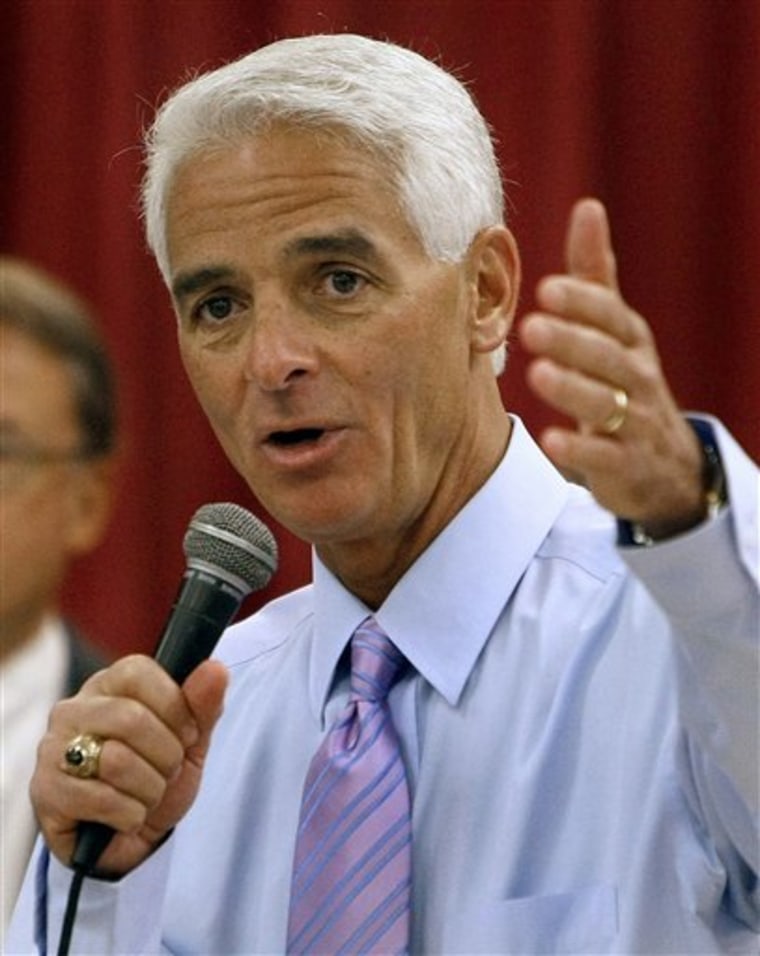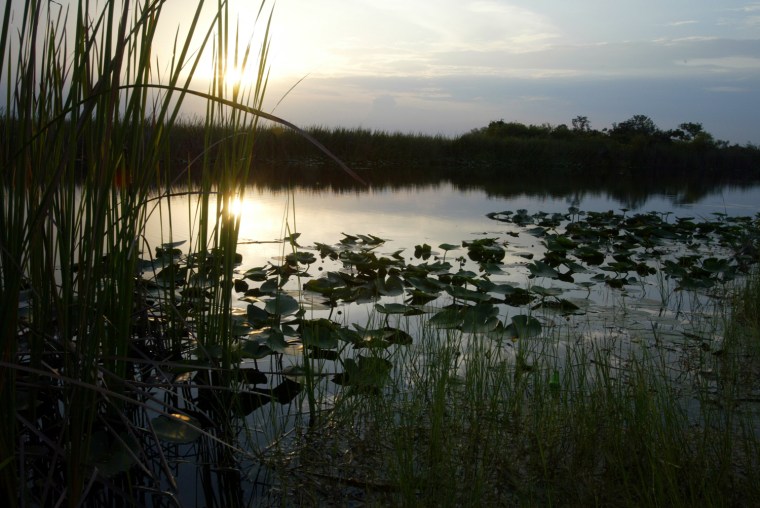Gov. Charlie Crist's grand plan to revive the dying Florida Everglades by buying back the land, a key part of his legacy, could be on the cusp of collapse and deal another blow to his Senate hopes.
A panel that oversees Everglades restoration is set to decide Thursday whether to kill the state's proposed $536 million deal to buy 73,000 acres from U.S. Sugar Corp. The proposal, much trumpeted by Crist, has already been cut by more than half from the initial plan announced in 2008, which was $1.75 billion for about 180,000 acres and the company's assets.
This week's board meeting of the South Florida Water Management District comes with Crist locked in a close contest for the GOP nomination for Senate. While the board is likely to vote to keep the plan alive, at least for now, the shaky proposal has been hammered by critics.
Crist's campaign has already been hurt by the slumping economy. Florida's unemployment rate has matched an all-time high and the state has a foreclosure rate among the highest in the country. He has also lost support among conservative voters by appearing with President Barack Obama to promote the $787 billion federal stimulus package, a bill most Republicans opposed.
Recognizing that at least some of his political fate is connected to the Everglades plan, the usually easygoing governor has grown defiant in the face of criticism that the deal is too expensive and will kill other key restoration projects.
"It doesn't matter what it looks like to the detractors," Crist told The Associated Press. "They're trying to stop it, for whatever reason. I really don't give a damn."
Rival picks on plan
Even if the deal goes through, it could hurt his campaign, as his opponent, former state House Speaker Marco Rubio, has criticized it as a colossal waste of taxpayer money to bail out a struggling sugar company.

It was a bold idea from the start: buy out the nation's largest cane sugar producer, and use the land to help clean polluted water entering the Everglades, something the state and federal governments have tried to do incrementally for years. It has since been downsized twice because of the sour economy.
Critics have questioned Crist's motives, claiming they're more politics than preservation. They contend, among other things, the cost has been inflated by U.S. Sugar executives hoping to pad their pockets, knowing the governor wants the land regardless. They say it will stall other key projects because the state won't have any money left to construct the reservoirs and water treatment marshes needed for restoration, making the entire proposal a boondoggle.
"I think he's killing restoration virtually forever," said Dexter Lehtinen, an attorney for the Miccosukee Indians, who live in the Everglades and are fighting the land deal in court alongside Florida Crystals, U.S. Sugar's main rival.
They seek to stop financing for bonds the state wants to issue to pay for the deal. The Miccosukee and the company largely share the same concerns, that the governor's proposal is just too bold and will only slow restoration efforts. Florida Crystals has also argued the deal will give an unfair business advantage to its competitor, because U.S. Sugar can lease back the land at a nominal rate for a number of years until the state's restoration projects are under way.
The state Supreme Court is set to hear the case next month.
Water board and budgets
More pressing is the water district board's decision.
A February letter to the district's chief financial officer from a state consultant warned of "difficult decisions" ahead and multimillion-dollar deficits for the agency if the sugar deal happens.
District board chairman Eric Buermann said it's too soon to say whether the contract remains financially viable given that it won't be completed for months. There is still time to review budgets, he said, but the board must approve a contract extension.
"If we don't do that, that's the end of the deal," Buermann added.
The Everglades have been dying for decades from the intrusion of farms and development, largely from people settling in a place never meant for development. The ecosystem has been dissected by dikes, dams and canals, effectively draining much of the swamp, and has been polluted by fertilizer and urban runoff.
It once sprawled across more than 6,250 square miles, but has shrunk by half, replaced with homes and farms, and has since lost 90 percent of its wading birds. Other creatures are at risk, too, including 68 species that are considered threatened or endangered.
Politically, the governor must stay the course, even if he contends "politics be damned," said Aubrey Jewett, a political science professor at the University of Central Florida.
"If he looks like he's backing off a signature project that was announced with great fanfare, that this was going to be a way to save the Everglades, and now he says he was wrong, it just adds to his image problem, that he's a lot of show with not many results," Jewett said.
Crist simply calls it "the right thing to do."
"Never again will we have the chance to buy this land. If we let this go, shame on us forever," he said. "Why U.S. Sugar? Because they're willing."
